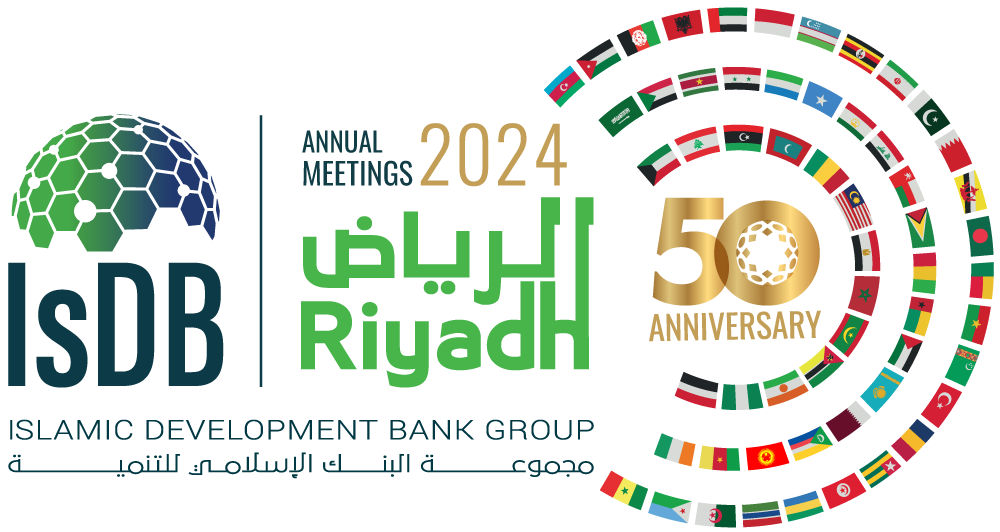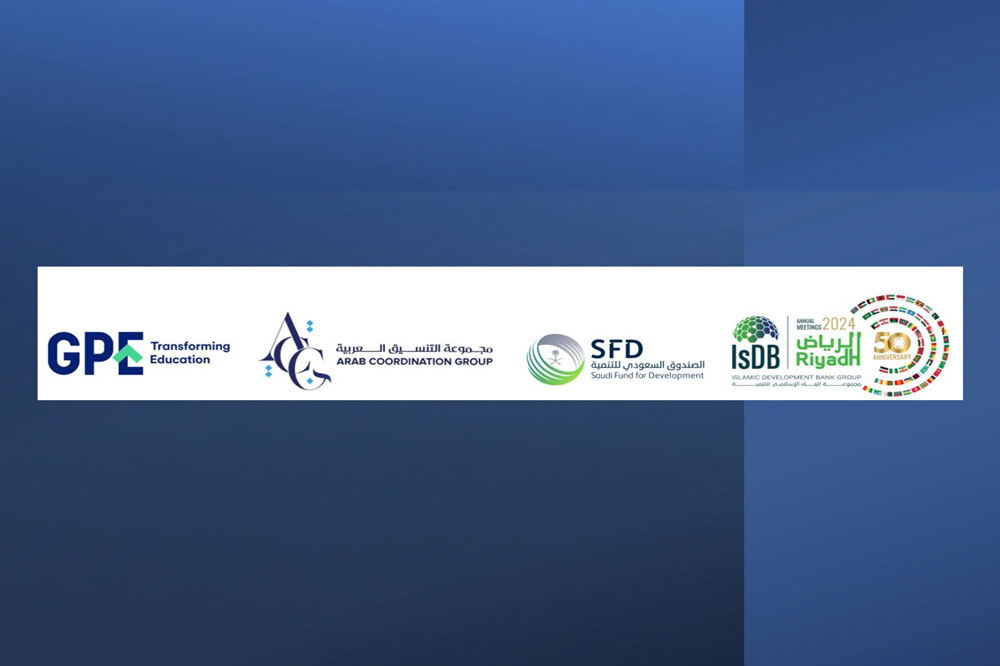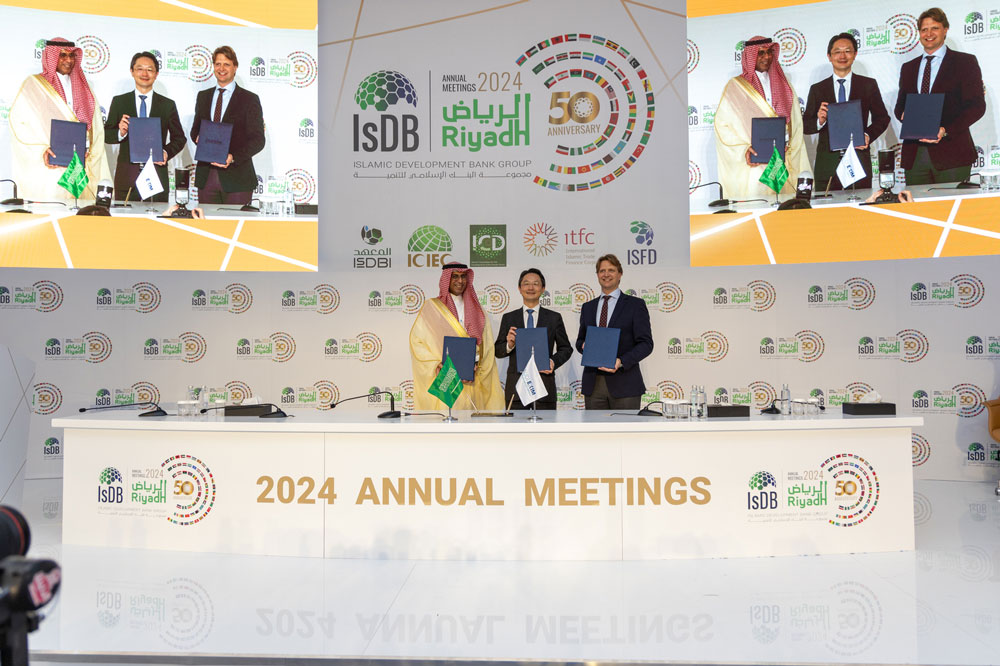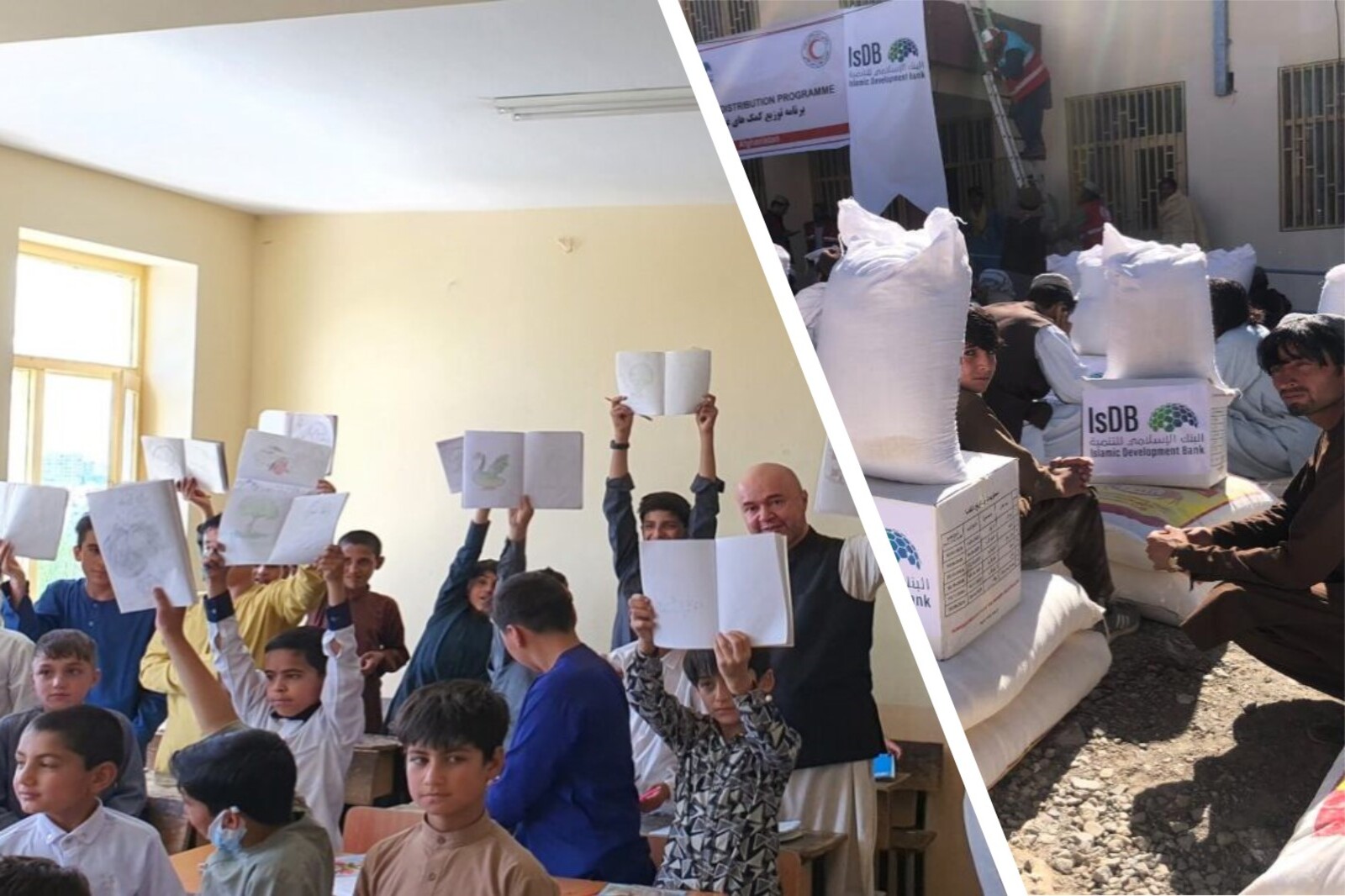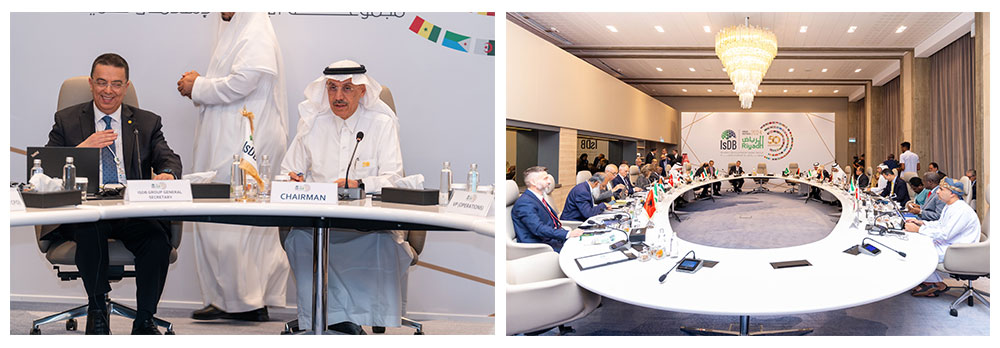RIYADH, WASHINGTON D.C., 28 avril 2024 – À l’occasion des Assemblées annuelles de 2024 et du jubilé d’or de la Banque islamique de développement (BIsD), la BIsD, le Groupe de coordination arabe (GCA) et le Fonds saoudien pour le développement se sont joints au Partenariat mondial pour l’éducation (GPE) pour célébrer le succès de SmartEd, un instrument de financement innovant qui a permis de mobiliser 500 millions de dollars au profit d’initiatives pour l’éducation. Fort de ce succès, les partenaires ont annoncé 350 millions de dollars de contributions supplémentaires pour SmarEd : 150 millions de dollars de la BIsD, 100 millions de la Banque Arabe pour de Développement économique en Afrique (BADEA), 50 millions de dollars du Fonds islamique de solidarité, et 50 millions de dollars du GPE.
« À l’heure où nous revenons sur nos 50 ans d’impacts significatifs et de développement, nous sommes ravis de constater que les financements innovants ont véritablement servi nos efforts au profit de l’éducation des enfants », a déclaré S.E. Dr. Muhammad Sulaiman Al Jasser, président du Groupe de la BIsD. « Le succès de SmartEd va nous propulser vers l’avant. Nous allons ainsi renforcer nos partenariats et préparer toute une génération future, en offrant aux enfants un meilleur accès à une éducation de qualité et en leur permettant d’acquérir des compétences fondamentales. »
À cause de la baisse des financements consacrés à l’éducation dans les pays à faible revenu, exacerbée par le poids de la dette, des crises prolongées et les effets résiduels de la pandémie de COVID-19, des millions d’enfants restent privés de la possibilité d’acquérir des compétences fondamentales pour trouver un emploi plus tard. Grâce à SmartEd, le GPE, la BIsD et le GCA ont pu mobiliser des ressources considérables en faveur de l’éducation qui autrement n’auraient pas été disponibles.
« À l’échelle mondiale, 250 millions d’enfants ne vont pas à l’école. Ce chiffre est effarant. Il s’agit d’une crise grave à laquelle s’ajoute une pénurie de ressources, » a relevé Laura Frigenti, directrice générale du GPE. « Face à toutes ces difficultés, SmartEd offre une lueur d’espoir et une bonne raison de se réjouir. Nous sommes impatients de travailler avec nos partenaires du Golfe pour amplifier ce succès et préparer plus d’enfants à un avenir prospère. »
Lancé en 2021, SmartEd utilise le fonds à effet multiplicateur du GPE, un outil qui permet d’accroître les financements de l’éducation en mobilisant 4 dollars US auprès des autres bailleurs de fonds pour chaque dollar versé par le GPE, aidant les pays à faible revenu à remédier aux problèmes cruciaux de l’éducation. SmartEd vise à améliorer l’accès à une éducation de qualité dans les 37 pays membres de l’Organisation de la coopération islamique, lesquels dénombrent 28 millions d’enfants non scolarisés. À ce jour, SmartEd a affecté 350 millions de dollars à des projets au Cameroun, en République kirghize et en Ouzbékistan.
Le programme fait déjà une différence considérable. Ainsi, en 2023, l’Ouzbékistan a mobilisé 160 millions de dollars de cofinancement dans le cadre de SmartEd, ce qui a permis de lever 40 millions de dollars au titre du fonds à effet multiplicateur du GPE. Ce financement a encouragé le gouvernement ouzbek à verser une contribution supplémentaire de 20 millions de dollars, pour une enveloppe financière totale s’élevant à 220 millions de dollars, destinée à assurer un accès plus équitable à une éducation de qualité et à renforcer l’efficience du système éducatif. En Ouzbékistan, les fonds de SmartEd sont également utilisés pour construire et équiper plus de 80 écoles, et améliorer les systèmes d’information pour la gestion de l’éducation, afin de prendre de meilleures décisions fondées sur les données.
À propos de la Banque islamique de développement
La Banque islamique de développement (BIsD) est une banque de développement multilatérale qui s’efforce de favoriser les progrès socioéconomiques dans ses pays membres et les communautés musulmanes du monde entier. Guidée par les principes du financement islamique, la BIsD apporte une aide financière, une expertise technique et prévoit des initiatives de renforcement des capacités qui visent à appuyer le développement durable et à améliorer la qualité de vie des populations dans ses pays membres. Comptant 57 pays membres, la Banque islamique de développement s’est engagée à relever les défis du développement et à promouvoir la collaboration pour assurer la réalisation des objectifs de développement durable des Nations Unies. Pour en savoir plus, rendez-vous sur www.isdb.org.
À propos du Partenariat mondial pour l’éducation (GPE)
Le GPE est un engagement commun pour mettre fin à la crise mondiale de l’apprentissage. Nous mobilisons des partenaires et des fonds pour aider 90 pays à faible revenu à transformer leurs systèmes éducatifs afin que chaque fille et chaque garçon puissent recevoir l’éducation de qualité dont ils ont besoin pour libérer leur potentiel et contribuer à la création d’un monde meilleur.

